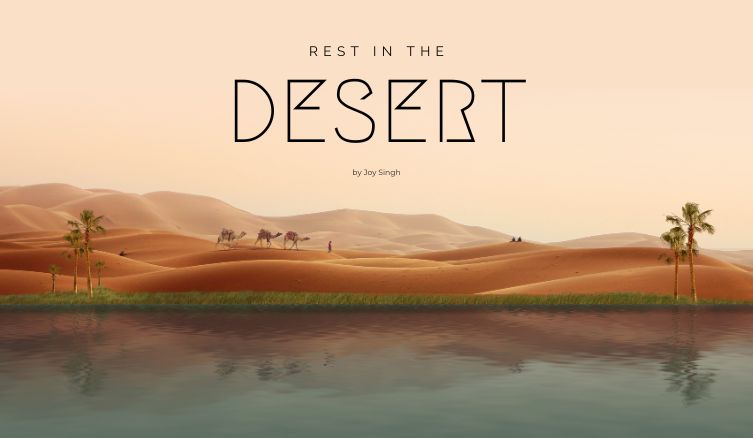
I began my professional career in a corporate at the age of eighteen. I pushed myself hard for the next ten years. I worked five and a half days a week, about 10-12 hours a day, without much break. Imagine working for ten years. In India, we take pride in working more than the others. Working 12-15 hours a day makes us feel good about ourselves. In my office, if anyone would leave at 6 pm, people would think you were a slacker, even if you finished your work.
Apart from such a strange work ethic, there is the rat race that we will all pursue. There is always somebody standing behind us who is willing to work for a lesser salary and put in more hours. So, we have got to keep running and constantly prove our worth to the company.
The result is burnout, depression, and extreme exhaustion. Some of us lose precious time with our spouses, growing children, aging parents, and ourselves.
We see a similar scenario with Jesus’ disciples in Mark 6:30-32. At the beginning of the chapter, we see that Jesus gives authority to the disciples and sends them out to travel to heal the sick and deliver others from unclean spirits. They go all over towns and villages to fulfill their assignment or project. And in v.30, they come back excited and amazed at what they can do. They begin to give a presentation or report of their accomplished project, and Jesus stops them and says let us go to a deserted place to rest, for they had not eaten anything.
Jesus could have said, great, now let me give you your next project. Knowing the disciples, they would be sitting in front of their laptops and phones, constantly checking when the email would come from Jesus for the next project. There is no more significant project than spreading the good news of Jesus and the redemption of people. Even then, Jesus says, let us rest in a desert and isolated place.
God wove rest in the fabric of the creation. He created it and exemplified it in Genesis 1-2. God then gave Sabbath as a sign of the Mosaic covenant to Israel. Israel needed to work hard for six days and trust the Lord to meet all their essential needs, such as food and water, on the seventh day. Remember, they were in the desert.
Rest is not only essential for a healthy body and mind, but it also displays our trust in God. A young man who recently got married came to me and said, I am struggling with my marriage. I am not able to balance work and married life. My new boss is demanding and asks me to work on my day off. I asked him, can you trust God and say no to your boss working on your day of rest? Can we stop running intermittently and trust God to fill the gap? Can we go to a desert place, tune off from the daily mundane, and be quiet for a while? Rest is intricately tied to our identity. Who we think we are, determines our life choices. Coming away to a desert place to rest, even when the demands stack up against you, shows honoring and trusting God, and not resting when appropriate shows a lack of trust in God to provide.
I mentioned earlier that Sabbath was a sign of the Mosaic covenant. It means that God's temporary Sabbath pointed towards a greater rest—rest that will be forever, cease all our strivings, and rest eternally in God. Our journey to a desert place, like the Israelites, the disciples, and Jesus, points towards a more permanent rest that awaits us. The Desert is a place of rest, enabling us to tune off from the daily mundane to tune in to God. Rest today in the hope of a greater rest tomorrow.